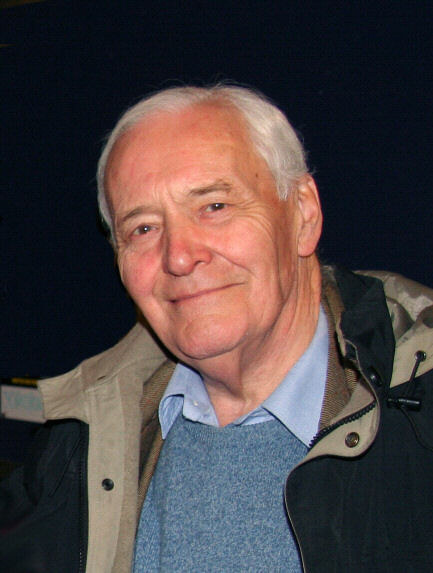 This Is Not A
BLOG!
This Is Not A
BLOG!
Date: 14/03/14
Who's Left?

Anthony Neil Wedgwood Benn
Poltician and author
b. 3 April 1925, d. 14 March 2014
It has been a gloomy week for anyone who considers themselves to be on the left in Britain.
Following the sudden and premature death of RMT leader Bob Crow on Tuesday morning, the death of Tony Benn this morning - although far less of a surprise (he had been on poor health for a couple of years) - seems like the end of a whole era, one in which genuinely progressive politics mattered and was seen to matter.
I did not agree with every position that he adopted by any means: I found his Brittocentrism somewhat annoying, but far less so than its overtly right-wing equivalents; I thought his idea that the judiciary should be elected to be actively dangerous (we can see what a great triumph for justice that has been in the US); and I thought his faith in the revivability of a Labour Party which had long since deserted whatever principles it may still have had in order to set itself up in permanent, non-domiciled geostationary orbit around Planet Pelf was utterly na´ve, if sometimes endearingly so. 'Parliamentary Socialism' can only work if you have a significant number of socialists in Parliament, something we have not seen this side of the Kinnock Purges.
Some of his positions seemed odd, or just eccentric. For example, the journalist Ann Leslie (with whom I would seldom see eye-to-eye on anything, but whose autobiograhpy Killing My Own Snakes is a 'must-read') once interviewed Benn in his ministerial office. She remarked upon the map of Great Britain on the wall, which was upside-down. Benn said that that was deliberate on his part, as it gave him a different perspective on the country.
Similarly, during his campaign in 1984 to regain his place in the Commons by fighting the Chesterfield by-election (in which one of his opponents stood under the rubric of "Re-classify The 'Sun' As A Comic"), he responded to one question about animal welfare by stating, "I'm moving slowly towards a full vegetarian position".
But his positions, 'full vegetarian' or otherwise, and however odd they may have seemed (and actually have been) at times, were at least sincerely held and based on a thought-through ethical position, one which he could argue cogently and at length. Tony Benn possessed a sharp and analytical cast of mind, one which he was not reticent in using.
This, allied to his commitment to the democratisation of society, and his awareness of the inordinate power held by those who control the mass media, made him a perceived danger to the vested interests which proliferated like germs around the open sores of the economic, political and social dysfunctions which made themselves evident during the seventies. He had powerful enemies - the business and media Úlite prominent amongst them - although they were the sort of enemies that a radical progressive should have. But those enemies used their power to construct a cartoon of Benn as a swivel-eyed loon which - thanks to constant repetition - stuck in the minds of the public and rendered him something of an electoral liability, a phenomenon which also undermined the regular self-serving English boast that they absolutely adore those deemed to be mildly eccentric. Few political figures have had to endure the constant calumny and misrepresentation which Benn had to put up with for the latter part of his parliamentary career.
This being so, it almost certainly amused him that - after leaving Parliament to spend, as he said, more time in politics - in his final years he became a form of English National Treasure™, which would seem to suggest that the mildly eccentric are worshipped by the English so long as they are no longer in a position to actually threaten The Way Things Are Supposed To Be. It was during this period that he became a greatly sought-after speaker at public events and demonstrations, and when his diaries - meticulously kept for all bar the last three years or so of his life - became regarded as essential reading for anyone interested in British politics.
I leave you with the following quote - from a speech in the Commons in 2001 - which to me sums up Tony Benn's analysis of the nature of politics, of power and of democracy, and which should serve as a touchstone for anyone who wishes to measure the truth of all claims to democratic legitimacy made by politicians and businessmen alike:
"If one meets a powerful person - Adolf Hitler, Joe Stalin or Bill Gates - ask them five questions:
"What power have you got?
Where did you get it from?
In whose interests do you exercise it?
To whom are you accountable?
And how can we get rid of you?"
If you cannot get rid of the people who govern you, you do not live in a democratic system."

 This Is Not A
BLOG!
This Is Not A
BLOG!
